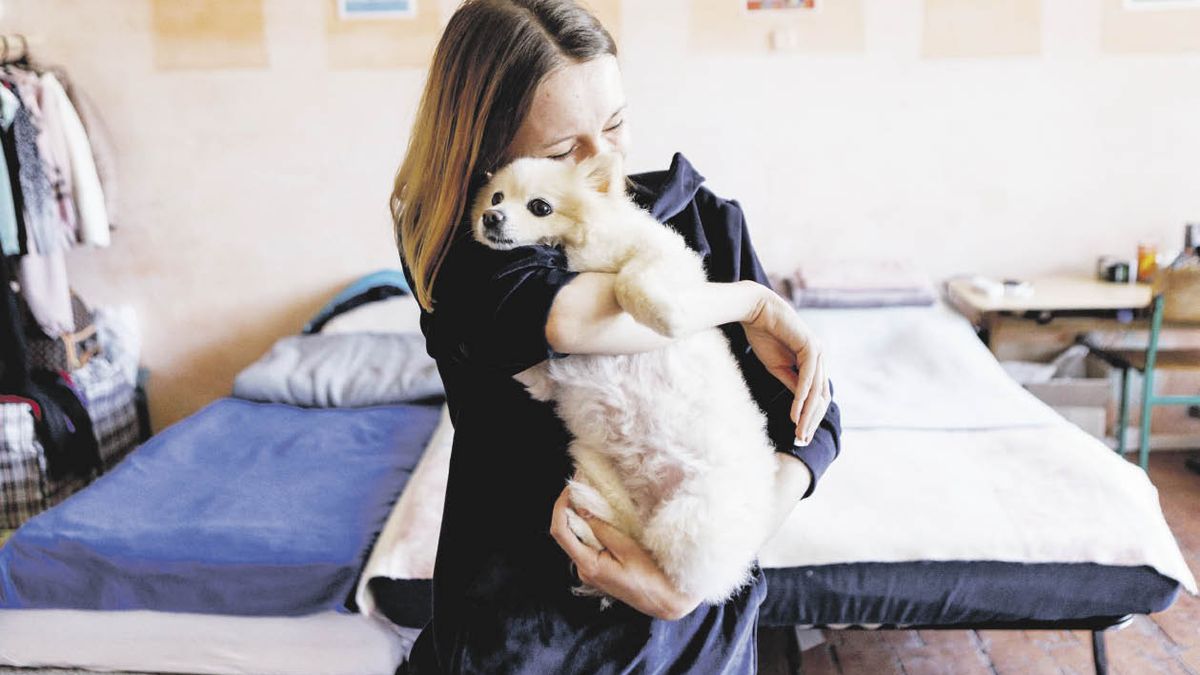In early April, a woman who had managed to leave the city of Kherson, occupied by Russian forces since early March, recounted – asking to remain anonymous – that two Russian soldiers raped her in her home, after someone would have denounced as the wife of a Ukrainian soldier.
However, this type of testimony is still unusual. In Bucha, at the gates of the capital, where hundreds of bodies were discovered after the withdrawal of Russian troops – at the end of March – the inhabitants refer to this type of tragedies with half words.
“A doctor told me that for months the ambulance only transported women with this problem,” says Volodímir Strilets, a 45-year-old plumber from Bucha.
For his part, Father Andriy Galavin, of the Ukrainian Orthodox Church, considers that it is better not to address the issue “so that these women can resume their lives.” The religious limits himself to indicating to his faithful that “being raped is not a sin.”
In Ukraine “there are still huge stereotypes around rape”, says Yulia Sporysh, founder of the organization “Divchata” (“Girls”). According to her, “the suspicion that the victims may have provoked their aggressor” has not yet completely disappeared and many of them end up keeping silent.
Attendance
His association opened a line to help people raped since the war began on February 24. “At the moment, we mostly receive requests from relatives, or from volunteers, but not from the victims directly,” he explains.
The specialized NGO “La Strada” has also launched a similar number. At the end of May, he had only received 13 calls, relating to 17 people, one of them a man. “He said that he was so ‘ashamed’ that he refused even to go see a doctor,” says Yulia Anasova, a lawyer who works for the organization.
Of those victims – all raped by Russian soldiers, and often at home, according to Anasova – only three filed a complaint.
“They are even less willing to go to the police than to receive medical treatment,” the lawyer points out.
In recent times there have been advances but, even so, researchers are still
being poorly trained to deal with this type of case. In addition, they often make the victims go through often difficult interrogations and medical examinations, contrary to what international recommendations dictate, Anasova points out.
In one month, a special police unit managed to identify only “13 victims of sexual crimes” in the kyiv region, according to figures released by Deputy Interior Minister Kateryna Pavlichenko.
For the military psychologist Natalia Zaratska, it is still too early to collect the testimonies of the victims. “It would be more realistic to talk to them in six months, they will control their memory better,” she says. “For a criminal investigation you need information, not emotions.”
On the other hand, he does believe that it is urgent to provide them with psychological support as soon as possible. “But they won’t come to us so it’s up to us to go to them.” At least three times a week, Zaratska visits Bucha, where three other psychologists also work, despite the fact that “12 or 16” would be needed, according to her.
Rape victims, whom Zaratska refers to as “survivors,” only speak “when they are in the presence of someone who understands that, in times of war, rape is a form of torture,” says the psychologist. In addition, victims need to be assured that their testimony will be confidential, she adds.
However, several personalities have published sordid details, such as the former head of Human Rights in Parliament, Liudmyla Denisova – dismissed on Tuesday – who published on social networks the story of a girl who was raped “with a spoon”. “This is something totally unethical” that “can cause victims a second trauma,” emphasizes the specialist.
AFP Agency
Source: Ambito
David William is a talented author who has made a name for himself in the world of writing. He is a professional author who writes on a wide range of topics, from general interest to opinion news. David is currently working as a writer at 24 hours worlds where he brings his unique perspective and in-depth research to his articles, making them both informative and engaging.




